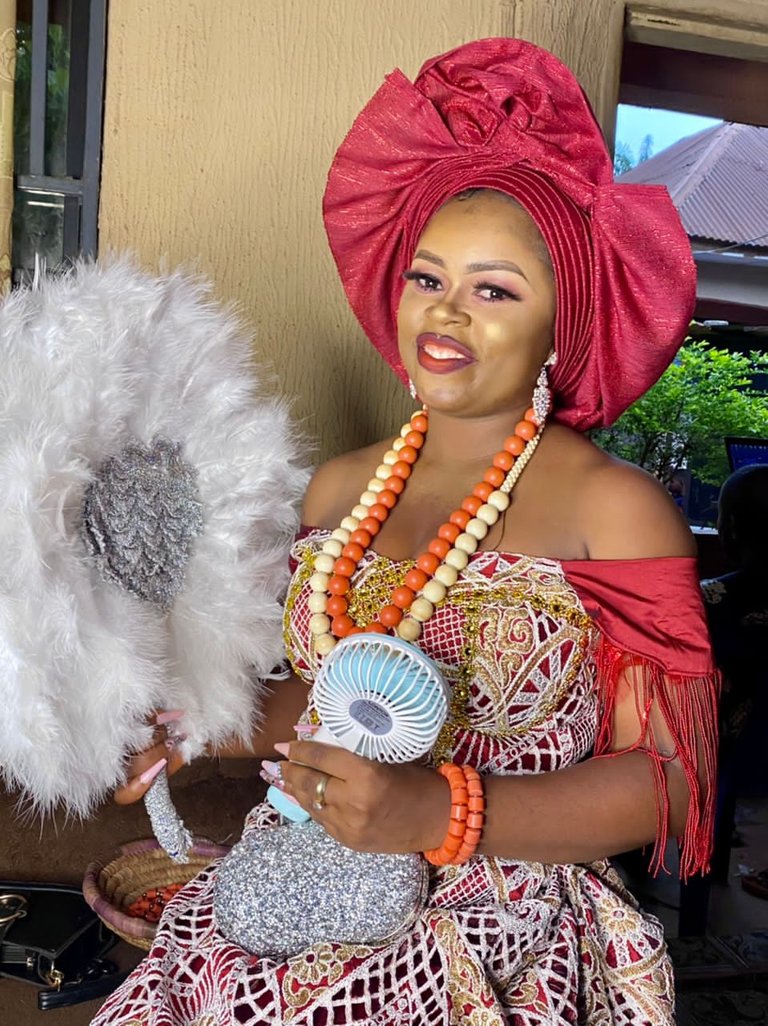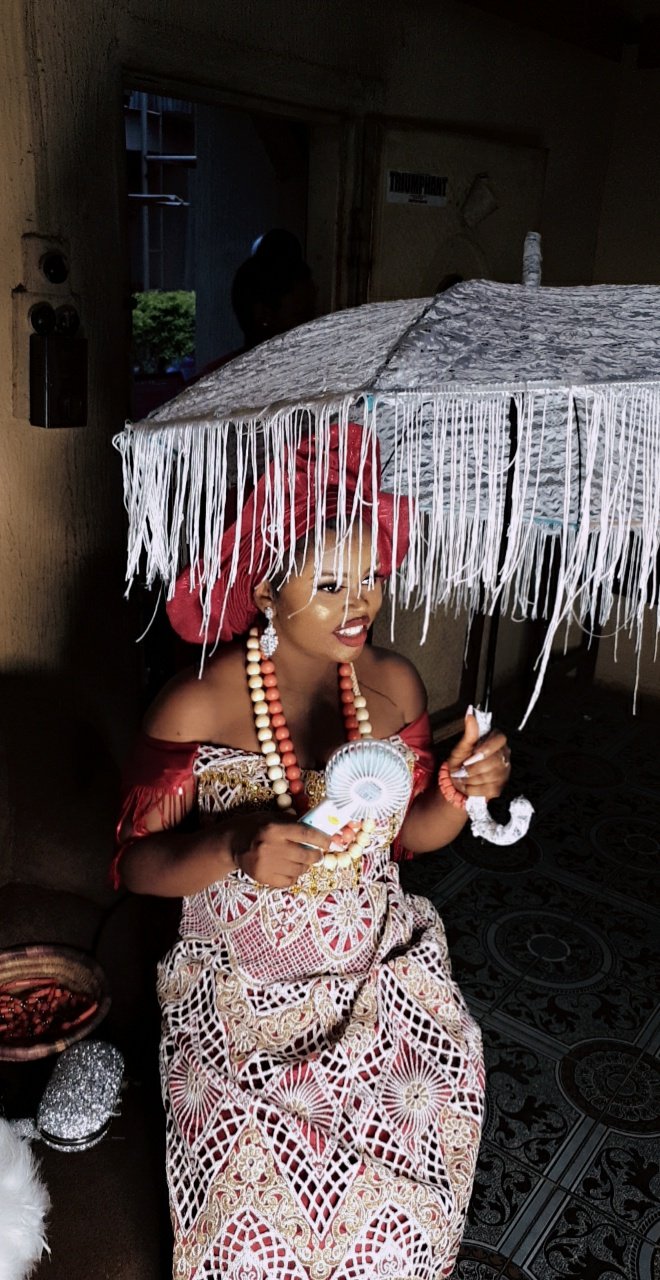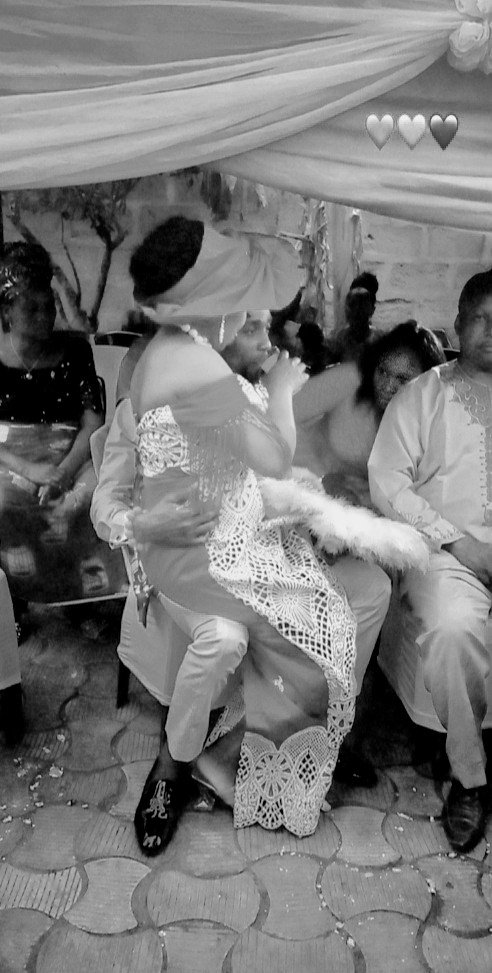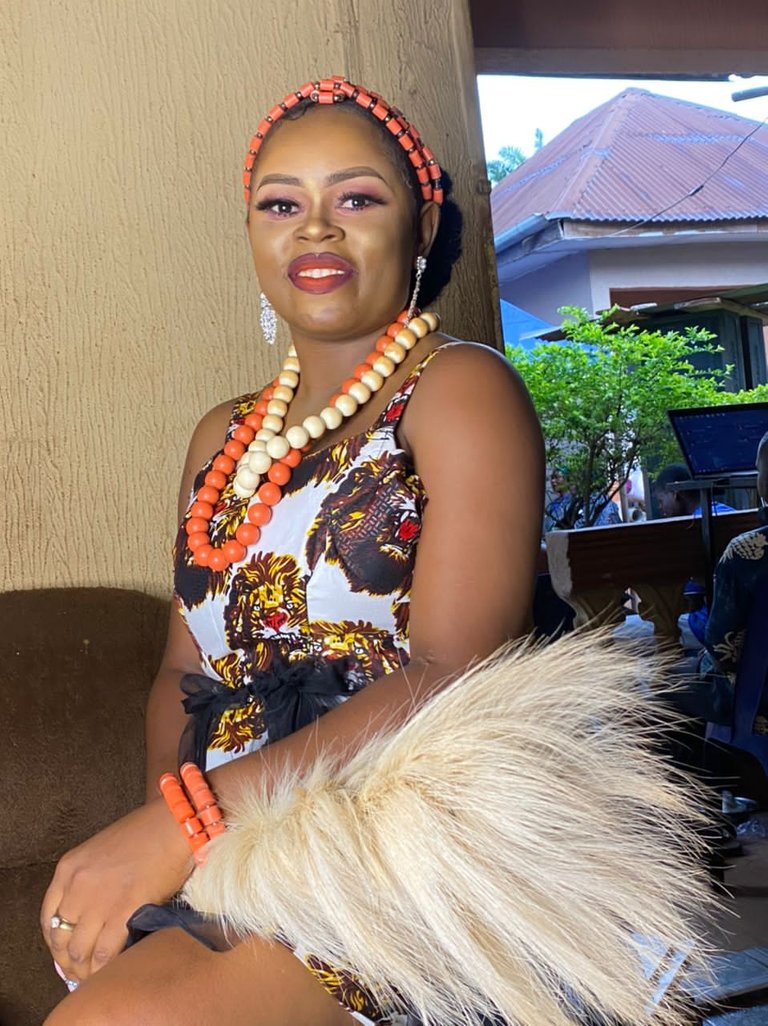IGBO TRADITIONAL MARRIAGE (IGBANKWU)
 my sister during her traditional marriage
my sister during her traditional marriage
Marriage is a beautiful thing. To some married folks, it it best thing that happened to them while to some,it is the worst thing that happened to them and all this depends on the kind of person they got married to. For me though not yet married but I will continue to see marriage as a beautiful thing. Even the Holy Bible said it is not good for a man to be alone, hence the need for a life partner.

Before civilization and the coming of Christianity, we have been getting married in our traditional way and we still do though now christians add church wedding. Permit me to introduce my tribe to you briefly. I'm a full blooded Igbo man from Igbo tribe, the third largest tribe in Nigeria and among the three major tribes in Nigeria. Located in the Eastern part of the country, the Igbo people are known for their industrious nature and business prowess. An Example is the current Director-general of world trade organization, Her Excellency Ngozi Okonjo-Iweala who hails from Delta State Nigeria. We Igbos are known to be explorers and travellers. Travel around the world mostly for greener pastures. We haveany unique characteristics that distinguishes us from other tribes in Nigeria. Most of our brothers and sisters from other tribes often say we love money too much. My reply to some of them is who doesn't love money. The truth is we love money very well and that's among the things that inspire us for success.
Igbo traditional marriage is known as IGBANKWU. IGBANKWU is the last stage of the marriage which is the wine carrying ceremony by the bride to be. My elder sister who got married last week did her own. Before the IGBANKWU, there are other traditions to be observed by the bride groom to be and his people. They are
MARRIAGE INQUIRY (IKU AKA): this stage is called Iku aka in Igbo and it is the first stage. It is simply the bridegroom to be and his father or relativel visiting their wife to be family and letting them know about their intention to marry their daughter. The father or relative of bridegroom to be tells the girl parents their aim of coming and the girl is called in the presence of everyone. She will be asked if she would love to marry the young man, if she agrees then to the second stage.
SEEKING CONSENT FROM THE UMUNNA AND INQUIRY ABOUT THE BRIDEGROOM AND FAMILY: this stage is an investigative stage. The bride to be family start to investigate about the groom to be and his family. They check their background and his, bad behaviour, infidelity, hereditary diseases, fertility among others. This helps the bride to be family to determine if the young man is good enough for their daughter. The UMUNNA (kindred) are informed about the visit of the bridegroom to be and the success of this stage leads to third stage.
BRIDE PRICE NEGOTIATION AND PAYMENT (IME EGO): stage is critical and it is important to note that the bride price paid is not indication of the bride worth. It is just a tradition and the money paid varies. This stage involves the UMUNNA(kindred) of both the young man and girl, not many people are involved. The engagement list is given to the bridegroom and his people to provide, this list differs slightly from place to place in Igbo land.
WINE CARRYING CEREMONY (IGBANKWU): this is the final rite done by the groom family. This is a feast and it is done at the bride home. The groom must have provided the engagement list given to him by the bride kindred before the ceremony begin. The key part of the ceremony is the bride dances to meet her father or the eldest man in the family, she knee to receive cup of palm wineand she requested to show the crowd her husband by handing the cup of wine to him. She dances with cup of wine to meet her husband accompanied by her maidens known as Asoebi. At this point the invited guests are curious to know her husband, who ever she hands the cup of palm wine to is her husband.

The groom and bride dances to her father who pronounce blessings on them and wishes them well. The rest of the evois merriment and presentation of gifts to the couple by friends and family.

Hello, we have chosen this post to be curated by MCGI Cares(Hive) community. We are inviting you to join our community that study the words of God.